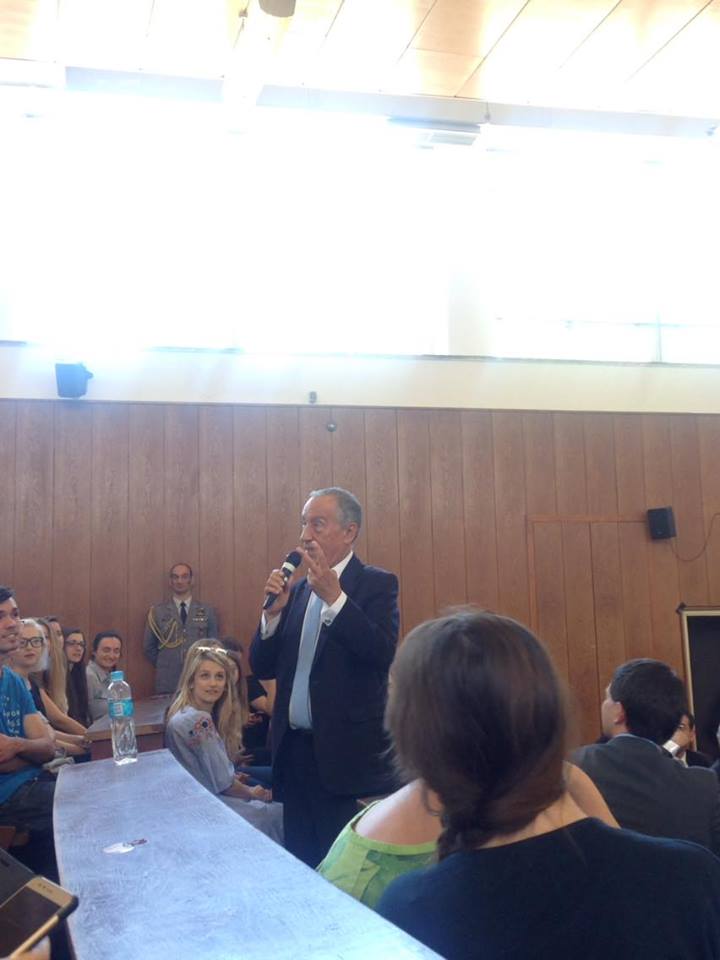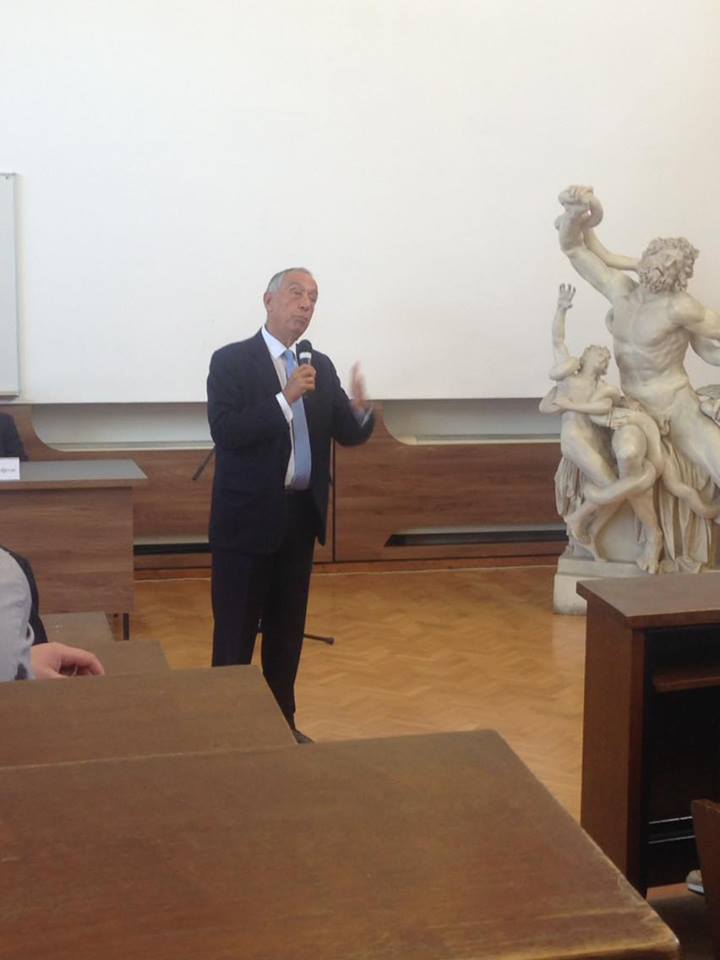The President of Portugal, Dr. Marcelo Rebelo de Sousa, visited the Faculty of Humanities and Social Sciences in Zagreb earlier today, May 19.
After attending the exhibition on Portuguese painted tiles, azulejos, (that we wrote about here) at the Museum of Arts and Crafts yesterday, the President attended an event organised by the Department of Portuguese Language and Literature, one of the newest programme studies at the Faculty. With approximately 215 to 220 million native speakers and 260 million total speakers, Portuguese is the sixth most natively spoken language in the world and the third-most spoken European language in the world in terms of native speakers.
Portuguese has been taught as part of the Romance Language Department since 1942, and a separate sub-faculty was founded in 1978, but it became operational in 1981. It functioned as a two-year study programme until 1998, from 1998 until 2005 it was a three-year supplementary study and in 2005 it became a regular part of the study programme, with a three-year Bachelor programme and a two-year Master Programme. Around 30 new students start the programme each year.
The President was very relaxed and talkative and thanked University Rector Damir Boras and Faculty Dean Željko Holjevac for being there, as well as Head of Department Dr. Sc. Nina Lanović and other professors, and thanked the students for choosing to study Portuguese, commenting how he was glad that the majority of people in attendance were women because the future is female. He added jokingly that now that the students speak the language they can finally interview Cristiano Ronaldo, José Mourinho, or, if they are more romantic, Salvador Sobral, Eurovision winner. He added that the entire nation was thrilled when Sobral won because it is normally only their neighbours, Spain, who give them some points at the contest, and that it was an unbelievable day for everyone in Portugal: sports lovers were thrilled because Benfica won the Cup, religious people were happy because the Pope visited Fátima, and music lovers couldn’t believe it when Portugal won Eurovision. He joked that they have to try and not let it go to their heads because people have started believing they are invincible and can do anything.

He was very informal and wanted to hear questions from the students. He said that this was his first time visiting Croatia and that he wanted to come here sooner, but it was complicated due to security and protocol. He said that he loves how Zagreb has a lot of history and that, while he was walking around, he noticed that there were many young people sitting outside having fun, adding that, unlike in Portugal, most of them drink, and in Portugal everyone likes to enjoy a good meal out as well.
One of the students asked if the President could give her some tips on what she should visit when she goes to Portugal in the summer, and he invited her to leave her contact details so that she could join him for breakfast (and his assistant really took her contact details).
He went on to comment how he hoped Croatia and Portugal, even though the relations between the countries are great, would develop even closer ties in the future. He joked that the students will have an upper hand because no one in Portugal speaks Croatian, while there are now many people speaking Portuguese in Croatia.

The President was asked to comment on Brexit and the future of the EU – he replied that, if it were up to him, he would have loved it if the UK hadn’t decided to part ways with the EU, but we live in a democratic world and we now have to handle the situation the best we can.
He concluded that this visit will be an incentive for the academic community to start working on developing more opportunities for Croatian students to visit Portugal because getting to know the country is as important as learning its language.







